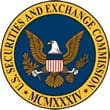Form ADV Part 1 Annual Amendment
Form ADV Part 1 Annual Amendment. As we are now securely in the first quarter of 2018, many registered investment advisor (RIA) firms are reviewing their Form ADV Part 1 Annual Amendment. This review is in preparation of updating that filing and submitting it by the deadline of March 31, 2018. These are RIA firms that have a December fiscal year end.
New Form ADV Part 1 Questions
This year, with the Form ADV Part 1 Annual Amendment registered investment advisors will encounter the ‘new’ questions that were incorporated in the Form ADV Part 1 as of October 1, 2017.
While there are many new questions to consider, clarity needs to be provided for two questions, in particular. Section 5, Information about your Advisory Business – Employees, Clients and Compensation. Specifically, Question 5K (1) Separately Managed Account Clients. For purposes of the Form ADV, “Separately Managed Account clients” are generally defined as all of your clients who investment advisors provide advice to EXCEPT, private funds, business development company and mutual funds. Outside of private funds, business development company and mutual funds, all other types of ‘clients’ come under this term. (i.e., individuals, High Net Worth individuals, corporations, pension plans, etc.).
The next question is Question 5K (4). This is the question that is asking the advisor to provide the name of the custodian(s) that holds 10% or more of your client’s regulatory assets under management. The reporting on the corresponding schedule for Question 5K (4) is to include the name of the custodian/address, CRD/SEC number and the corresponding assets held by that custodian(s).
As mentioned above, there are many more ‘new’ questions this year on the Form ADV Part 1 than what has been mentioned here, however, this information is intended to help provide more guidance on the spirit of information that needs to be provided for the two questions mentioned.
If you need assistance with your Form ADV Part 1 Annual Amendment filing or any other investment advisor compliance needs, contact Registered Advisor Services today for a free consultation!
RIA Compliance Consultant
RIA Compliance Consultant. The Office of Compliance Inspections and Examinations (OCIE) of the Securities and Exchange Commission (SEC) has now published its examination priorities for 2018. Their five themes are included here and below is the detail:
- Matters of importance to retail investors and seniors
- Compliance and risks in critical market infrastructure
- FINRA and MSRB
- Cybersecurity; and
- Anti-Money Laundering programs.
Matters of importance to retail investors and seniors
Disclosure of the Costs of Investing: Examiners will review, among other things, whether fees and expenses are calculated and charged in accordance with the disclosures provided to investors. They will also review fees charged to advisory accounts, particularly where the fee is dependent on the value of the account, to assess whether assets are valued in accordance with investor agreements, disclosures, and the firm’s policies and procedures.
Electronic Investment Advice: Examiners will continue their review of investment advisers and broker-dealers that offer investment advice through automated or digital platforms (robo-advisors) and will focus on registrants’ compliance programs, including the oversight of computer program algorithms that generate recommendations, marketing materials, investor data protection, and disclosure of conflicts of interest.
Wrap Fee Programs: Examiners continue to examine registered investment advisers and broker-dealers associated with wrap fee programs, which charge investors a single bundled (wrapped) fee based on a percentage of assets for investment advisory and brokerage services. They will review whether investment advisers are acting in a manner consistent with their fiduciary duty and whether they are meeting their contractual obligations to clients. Areas of interest will include whether:
- the recommendations to invest in a wrap fee program and to continue in the program are reasonable,
- conflicts of interests are disclosed in compliance with applicable regulatory requirements, and
- investment advisers are obtaining best execution and disclosing costs associated with executing trades through another broker-dealer
Never-Before-Examined Investment Advisers: Examiners will continue to review both newly registered advisers or those advisers that have not been examined in some time. The examiners will make risk-based assessments and select those investment advisers for examination that have elevated risk profiles.
Senior Investors and Retirement Accounts and Products: Examiners will continue to conduct examinations of investment advisers and broker-dealers that offer services and products to investors with retirement accounts. These examinations will focus on, among other things, investment recommendations, sales of variable insurance products, and sales and management of target date funds.
Mutual Funds and Exchange Traded Funds (ETFs): Examiners will focus on mutual funds:
- that have experienced poor performance or liquidity in terms of their subscriptions and redemptions relative to their peer groups,
- that are managed by advisers with little experience managing registered investment companies, or
- that hold securities which are potentially difficult to value during times of market stress, including securitized auto, student, or consumer loans, or collateralized mortgage-backed securities. They will also focus on ETFs and mutual funds that seek to track custom-built indexes to review for any conflicts the adviser may have with the index provider and the adviser’s role with respect to the selection and weighting of index components.
With respect to ETFs, examiners focus will be on funds that have little secondary market trading volume and that face the risk of being delisted from an exchange and having to liquidate assets. The focus of these examinations will include analyzing whether investment risks are adequately disclosed to investors.
Municipal Advisors and Underwriters: Examiners will continue to examine municipal advisors to evaluate their compliance with registration, recordkeeping, and supervision requirements, particularly those municipal advisors that are not registered as broker-dealers. Examinations will also review for compliance with MSRB rules regarding professional qualification requirements, continuing education requirements, and core standards of conduct and duties of municipal advisors when engaging in municipal advisory activities.
Cryptocurrency, Initial Coin Offerings (ICOs), Secondary Market Trading, and Blockchain: The cryptocurrency and ICO markets have grown rapidly and present a number of risks for retail investors. Along with the growth of these products and markets, the number of broker-dealers and investment advisers engaged in this space continues to grow as well. Examiners will continue to monitor the sale of these products, and where the products are securities, examine for regulatory compliance. Areas of focus will include, among other things, whether financial professionals maintain adequate controls and safeguards to protect these assets from theft or misappropriation, and whether financial professionals are providing investors with disclosure about the risks associated with these investments, including the risk of investment losses, liquidity risks, price volatility, and potential fraud.
Compliance and Risks in Critical Market Infrastructure
Clearing Agencies: Examiners will continue to conduct annual examinations of clearing agencies that the Financial Stability Oversight Council has designated as systemically important and for which the Commission is the supervisory agency. Examinations will focus on compliance with the Commission’s Standards for Covered Clearing Agencies, whether clearing agencies have taken timely corrective action in response to prior examinations, and other areas identified in collaboration with the Division of Trading and Markets and with other regulators.
Focus on FINRA and MSRB
FINRA: Examiners will focus on FINRA’s operations and regulatory programs and the quality of FINRA’s examinations of broker-dealers and municipal advisors that are also registered as broker-dealers.
MSRB: Examiners will examine the MSRB to evaluate the effectiveness of select operational and internal policies, procedures and controls.
Cybersecurity
Cybersecurity continues to be a priority with examiners. As in recent years, the examiners will continue to focus on, among other things, governance and risk assessment, access rights and controls, data loss prevention, vendor management, training, and incident response. Examiners are focused on working with firms to identify and manage cybersecurity risks and to encourage market participants to actively and effectively engage in this effort.
Anti-Money Laundering Programs
Certain financial institutions are required by regulations adopted under the Bank Secrecy Act to establish anti-money laundering (AML) programs. These “AML program” rules require institutions (including the securities firms that are regulated such as broker-dealers and investment companies) to, among other things, establish written programs to identify their customers, perform customer due diligence, and monitor accounts for suspicious activity. Currently, registered investment advisors are not considered a financial institution subject to the Bank Secrecy Act. In 2018, examiners will continue to focus on whether the entities they regulate under the Bank Secrecy Act are appropriately adapting their AML programs to address their obligations. Their reviews will cover, for example, the customer due diligence requirement and will look to determine whether these entities are taking reasonable steps to understand the nature and purpose of customer relationships and to properly address risks.
Contact Registered Advisor Services today, your RIA Compliance Consultant to help with your investment advisory compliance functions!
RIA Compliance Services
RIA Compliance Services. The Office of Compliance Inspections and Examinations (OCIE) of the Securities and Exchange Commission (SEC) has now published its examination priorities for 2018. Their five themes are included here and below is the detail:
- Matters of importance to retail investors and seniors
- Compliance and risks in critical market infrastructure
- FINRA and MSRB
- Cybersecurity; and
- Anti-Money Laundering programs.
Matters of importance to retail investors and seniors
Disclosure of the Costs of Investing: Examiners will review, among other things, whether fees and expenses are calculated and charged in accordance with the disclosures provided to investors. They will also review fees charged to advisory accounts, particularly where the fee is dependent on the value of the account, to assess whether assets are valued in accordance with investor agreements, disclosures, and the firm’s policies and procedures
Electronic Investment Advice: Examiners will continue their review of investment advisers and broker-dealers that offer investment advice through automated or digital platforms (robo-advisors) and will focus on registrants’ compliance programs, including the oversight of computer program algorithms that generate recommendations, marketing materials, investor data protection, and disclosure of conflicts of interest.
Wrap Fee Programs: Examiners continue to examine registered investment advisers and broker-dealers associated with wrap fee programs, which charge investors a single bundled (wrapped) fee based on a percentage of assets for investment advisory and brokerage services. They will review whether investment advisers are acting in a manner consistent with their fiduciary duty and whether they are meeting their contractual obligations to clients. Areas of interest will include whether:
- the recommendations to invest in a wrap fee program and to continue in the program are reasonable,
- conflicts of interests are disclosed in compliance with applicable regulatory requirements, and
- investment advisers are obtaining best execution and disclosing costs associated with executing trades through another broker-dealer.
Never-Before-Examined Investment Advisers: Examiners will continue to review both newly registered advisers or those advisers that have not been examined in some time. The examiners will make risk-based assessments and select those investment advisers for examination that have elevated risk profiles.
Senior Investors and Retirement Accounts and Products: Examiners will continue to conduct examinations of investment advisers and broker-dealers that offer services and products to investors with retirement accounts. These examinations will focus on, among other things, investment recommendations, sales of variable insurance products, and sales and management of target date funds.
Mutual Funds and Exchange Traded Funds (ETFs): Examiners will focus on mutual funds:
- that have experienced poor performance or liquidity in terms of their subscriptions and redemptions relative to their peer groups,
- that are managed by advisers with little experience managing registered investment companies, or
- that hold securities which are potentially difficult to value during times of market stress, including securitized auto, student, or consumer loans, or collateralized mortgage-backed securities. They will also focus on ETFs and mutual funds that seek to track custom-built indexes to review for any conflicts the adviser may have with the index provider and the adviser’s role with respect to the selection and weighting of index components.
With respect to ETFs, examiners focus will be on funds that have little secondary market trading volume and that face the risk of being delisted from an exchange and having to liquidate assets. The focus of these examinations will include analyzing whether investment risks are adequately disclosed to investors.
Municipal Advisors and Underwriters: Examiners will continue to examine municipal advisors to evaluate their compliance with registration, recordkeeping, and supervision requirements, particularly those municipal advisors that are not registered as broker-dealers. Examinations will also review for compliance with MSRB rules regarding professional qualification requirements, continuing education requirements, and core standards of conduct and duties of municipal advisors when engaging in municipal advisory activities.
Cryptocurrency, Initial Coin Offerings (ICOs), Secondary Market Trading, and Blockchain: The cryptocurrency and ICO markets have grown rapidly and present a number of risks for retail investors. Along with the growth of these products and markets, the number of broker-dealers and investment advisers engaged in this space continues to grow as well. Examiners will continue to monitor the sale of these products, and where the products are securities, examine for regulatory compliance. Areas of focus will include, among other things, whether financial professionals maintain adequate controls and safeguards to protect these assets from theft or misappropriation, and whether financial professionals are providing investors with disclosure about the risks associated with these investments, including the risk of investment losses, liquidity risks, price volatility, and potential fraud.
Compliance and Risks in Critical Market Infrastructure
Clearing Agencies: Examiners will continue to conduct annual examinations of clearing agencies that the Financial Stability Oversight Council has designated as systemically important and for which the Commission is the supervisory agency. Examinations will focus on compliance with the Commission’s Standards for Covered Clearing Agencies, whether clearing agencies have taken timely corrective action in response to prior examinations, and other areas identified in collaboration with the Division of Trading and Markets and with other regulators.
Focus on FINRA and MSRB
FINRA: Examiners will focus on FINRA’s operations and regulatory programs and the quality of FINRA’s examinations of broker-dealers and municipal advisors that are also registered as broker-dealers.
MSRB: Examiners will examine the MSRB to evaluate the effectiveness of select operational and internal policies, procedures and controls.
Cybersecurity
Cybersecurity continues to be a priority with examiners. As in recent years, the examiners will continue to focus on, among other things, governance and risk assessment, access rights and controls, data loss prevention, vendor management, training, and incident response. Examiners are focused on working with firms to identify and manage cybersecurity risks and to encourage market participants to actively and effectively engage in this effort.
Anti-Money Laundering Programs
Certain financial institutions are required by regulations adopted under the Bank Secrecy Act to establish anti-money laundering (AML) programs. These “AML program” rules require institutions (including the securities firms that are regulated such as broker-dealers and investment companies) to, among other things, establish written programs to identify their customers, perform customer due diligence, and monitor accounts for suspicious activity. Currently, registered investment advisors are not considered a financial institution subject to the Bank Secrecy Act. In 2018, examiners will continue to focus on whether the entities they regulate under the Bank Secrecy Act are appropriately adapting their AML programs to address their obligations. Their reviews will cover, for example, the customer due diligence requirement and will look to determine whether these entities are taking reasonable steps to understand the nature and purpose of customer relationships and to properly address risks.
Registered Investment Advisors needing assistance with their RIA compliance services contact Registered Advisor Services today for a free consultation!
Investment Advisor State Regulations
Investment Advisor State Regulations. My last blog post was on the topic of investment advisor registration in general and mentioned that individuals who are thinking about starting their own registered investment advisor firm need to consider whether their firm will be registered with the state or the federal regulators. Most firms will likely register with the state regulator in the home state where their principal place of business is located.
That also applies to currently registered state investment advisor firms. Currently registered investment advisors, need to consider the investment advisor state regulations to confirm they are not running afoul of their compliance registration requirements.
State of New York Investment Advisor Registration
However, not all states have the same requirements for registered investment advisor firms. For example, the state of New York will allow a firm to have an office location in that state and engage up to five clients who are residents of the state, and then register the firm in that state.
State of Illinois Investment Advisor Registration
Other states, require firms to register in their state even if they do not have a physical office location in the state but rather are ‘doing business’ there. For example, launching a specific marketing campaign targeting individuals, retirees, etc. in Illinois will require the investment advisor firm is registered in Illinois before engaging in such activity.
Understanding these important investment advisor state regulations can be confusing. Consider speaking with a registration professional at Registered Advisor Services who can help you understand these important RIA state regulations and provide proper guidance.
Investment Advisor Registration Services
Investment Advisor Registration Services. Is it time for you to have your own independent registered investment advisory firm? Is so, Registered Advisor Services can help you through the process of registering both your firm, and you individually, with the appropriate state or federal regulators depending upon your business model.
Investment Advisor Registration Services
Our process is to understand what your goals are for your new firm and how you intend to invest your client’s assets. We can help with recommending custodians and service providers to help ease your transition into your new role as the owner of your new advisory firm.
Once we understand your goals, we are then charged with preparing your initial documents, such as, the Form ADV Part 1, Form ADV Part 2A Brochure, Form ADV Part 2B Brochure Supplement, Form U4, Client Agreements, Compliance Manual and any state specific forms that are required to complete your registration.
Timeline for registration
After you have signed off on the documents with your approval of how your firm is described, your documents are then submitted to the appropriate regulator. Once submitted, the regulators, both federal and state, have between 30 to 45 days to review the application and respond back with any questions. We respond as efficiently as possible to help keep your application in the que with the regulators, so that your registration may be effective as soon as possible.
Registered Advisor Services offers a free initial consultation to discuss your needs and goals. Contact us today and get your firm up and running soon!
Registered Investment Advisor Compliance Consultants usa
Registered Investment Advisor Compliance Consultants usa. Happy New Year! As we start 2018, this is a good time to look over your compliance files to be certain that you have met all of your investment advisor compliance requirements for 2017.
Investment Advisor Compliance Review:
Here is a brief list of items to start with for your review:
- Is your Form ADV Part 1 and Form ADV Part 2 Brochure, current and up to date with how your advisory firm operates?
- Is your Form ADV Part 2B Brochure Supplement, current and up to date for your Investment Advisor Representatives?
- Is your written policy and procedures manual current for how your investment advisory firm operates?
- Are your Form U4s up to date with any residential or outside business activity changes for your Investment Advisor Representatives?
- Are your advisory firm’s financial statements current and update to date?
- Have you maintained your net capital requirements, as applicable depending upon your firm’s state registration?
- Have all of your advisory clients been contacted throughout the year so that you are up to date with any life changes?
- Have you maintained copies of all of your advertising for the year, along with performance calculations?
- Did you perform a sample review of your advisory fee calculation confirming what clients are being charged is in compliance with the signed their client agreement?
- Have you completed your annual compliance testing requirement of your policy and procedures and have you documented what you did to test your procedures?
- Have all client complaints been properly resolved?
This is by no means a complete list of all of your compliance requirements, but rather a ‘start’ on what you, as a registered investment advisor, need to consider as you look back over 2017 to confirm you have met your year-end registered investment advisor compliance requirements.
Registered Investment Advisor Compliance Consultants usa
Registered Advisor Services offers hourly compliance consulting and ongoing compliance services to firms for their registered investment advisor compliance needs. Contact us today for a free consultation!
DOL Fiduciary Rule Extension
DOL Fiduciary Rule Extension. Recently, the Department of Labor (DOL) finalized a proposed 18-month extension for their transition period for firms to be in full compliance with the Best Interest Contract Exemption (“BICE”), Principal Transaction Exemption and PTE 84-24 from January 1, 2018 to July 1, 2019. The notice of the DOL’s Fiduciary Rule Extension was published in the Federal Register on November 29, 2017.
What does this mean for registered investment advisors? This extension by the DOL, as stated, is an extension of their transition period for implementation of the Best Interest Contract Exemption (“BICE”), Principal Transactions Exemption and PTE 84-24. What the DOL has left in place during this transition period, is registered investment advisors providing advice to their retirement clients are to comply with the Fiduciary standard as well as the Impartial Conduct Standards.
As a registered investment advisor, registered with either a state or federal regulator, on the day you become registered, you become a fiduciary on behalf of your clients. That means, you put your clients best interest ahead of your own and that of your advisory firm. This is inherent with all registered investment advisors.
The Impartial Conduct Standards under the DOL Fiduciary Rule are as follows:
- At the time of the recommendation, the recommendation is in the Best Interest of the Client;
- Compensation received cannot exceed reasonable compensation;
- Statements relating to an investment decision are not materially misleading.
Registered Investment Advisors are to be in compliance with these standards as of June 9, 2017; and, are to document your compliance file with the reason why the advice you provided to your client is considered in their best interest.
To the extent that financial institutions and registered financial advisors have already implemented policies and procedures designed to demonstrate compliance with the Impartial Conduct Standards, those policies and procedures should remain in effect. To the extent that such policies and procedures have not been adopted, financial institutions should seriously consider doing so. Even though the DOL has stated that its enforcement posture will continue to be focused on compliance assistance, depending on the facts, the DOL may conclude that certain compensation systems or other fact patterns are simply not in line with the Impartial Conduct Standards.
Contact Registered Advisor Services today for questions concerning the DOL Fiduciary Rule Extension.
Annual Amendment 2018-RIA compliance
Annual Amendment 2018-RIA compliance. Registered Investment Advisors with a December fiscal year end are required to prepare and file an annual updating amendment to their Form ADV within 90 days of your fiscal year end, or by March 31, 2018.
This year, with the annual amendment 2018-RIA compliance, registered investment advisors will be faced with new and more extensive questions on the Form ADV. Generally, the ‘new’ questions center around:
- Reporting your firm’s social media web addresses;
- Providing information about whether your RIA firm outsources your Chief Compliance Officer duties;
- New information about wrap fee programs;
- And, new information to report concerning your ‘separately managed account’ business.
Some registered investment advisors that I have spoken with do not believe the new questions centered around reporting information for ‘separately managed account’ business apply to them.
Investment advisors need to be cautious about this term ‘separately management accounts’ as the Securities and Exchange Commission (SEC) has defined this term very broadly so that it essentially includes all of your individual advisory clients, outside of any private funds, business development companies or mutual funds where your firm may provide investment advice. As a result, the majority of registered investment advisor firms will be impacted by these new questions.
If you have not yet reviewed the new Form ADV you should do so soon to prepare for your firm’s annual amendment 2018-RIA compliance.
Contact Registered Advisor Services today for a free consultation and price quote on assistance with your Annual Amendment 2018-RIA compliance.
Ongoing RIA Compliance-Cloud Computing Solutions
Ongoing RIA Compliance-Cloud Computing Solutions. Recently, I read an informative article published by Mayer Brown, a global law firm, on the topic of what General Counsels should be asking about the security and privacy implication of cloud services.
Many registered investment advisor firms that I work with utilize cloud based services to store their books and records and client information. This article provides five questions that all individuals should ask of their cloud service provider in an effort to protect their firm and client information.







